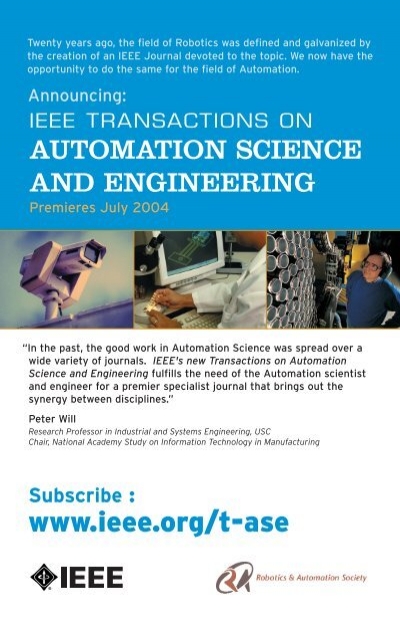基于深度强化学习的分时电价节能调度
IF 6.4
2区 计算机科学
Q1 AUTOMATION & CONTROL SYSTEMS
IEEE Transactions on Automation Science and Engineering
Pub Date : 2025-01-29
DOI:10.1109/TASE.2025.3536198
引用次数: 0
摘要
在碳调峰和碳中和的背景下,考虑能源的绿色生产调度越来越受到关注。强化学习(RL)已经成为开发解决复杂组合优化问题的有效算法的一个主题,例如现实世界的车间调度问题。本文研究了在分时电价条件下,以等待时间和额外电力成本最小化为目标的节能调度问题(ECSP)。在建立数学模型的基础上,提出了一种高效的基于深度强化学习(DRL)的优化方法来有效地解决该问题。根据问题的特点,设计了一种新的ECSP网络(ECSPNet)来处理各种规模的ECSP问题。此外,采用Tchebycheff分解方法解决多目标优化问题,并辅以应用强化学习的策略梯度方法训练无规模限制的ECSPNet。实验验证了所提出的ECSPNet优于最先进的方法,并且计算效率高,即使在训练中未见过的更大规模的实例上也是如此。实际案例研究表明,该方法可以在有效提高生产效率的同时,将年总电力成本降低约30%。从业人员注意:在提高制造系统生产效率的同时,增强能源意识已日益成为学术界和工业界关注的焦点,特别是随着对环境问题的日益重视和工业化的推进。广泛实施分时电价政策,有效平衡电力供需。对于业务经理来说,通过优化调度任务来适当地响应此策略可以显著降低能源成本。针对石墨材料制造中电极石墨化生产过程中出现的一种新型节能调度问题,研究了在分时电价条件下的节能调度问题。提出了一种综合考虑生产效率和能源成本指标的基于深度强化学习的节能调度优化方法。通过将ECSP的独特特性与强化学习的决策能力和深度学习的感知能力相结合,我们的方法在求解速度、效率和适应性方面具有突出的优势。通过不同规模的实际企业案例实验,验证了该方法的有效性和实用性。快速生成的优化调度计划可以帮助企业合理安排调度任务,同时使电力成本最小化。展望未来,我们提出的方法有可能解决在分时电价政策下广泛的能源意识调度问题。本文章由计算机程序翻译,如有差异,请以英文原文为准。
Deep Reinforcement Learning-Based Energy-Conscious Scheduling Under Time-of-Use Electricity Price
In the context of carbon peaking and carbon neutrality, green production scheduling that considers energy has attracted increasing attention. Reinforcement learning (RL) has emerged as a topic for developing efficient algorithms for solving complex combinatorial optimization problems, such as real-world shop scheduling problems. In this paper, we investigate the energy-conscious scheduling problem (ECSP) under time-of-use (TOU) electricity price with the goal of minimizing both the waiting time and extra electricity cost. A mathematical model is formulated, and an efficient deep RL (DRL)-based optimization method is proposed to solve the problem effectively. We design a novel ECSP network (ECSPNet) tailored to handle various ECSP scales based on the characteristics of the problem. Moreover, the Tchebycheff decomposition method is used to solve the multi-objective optimization problems, complemented by the application of the policy gradient method from reinforcement learning to train the ECSPNet without size limitations. Experiments verify that the proposed ECSPNet outperforms state-of-the-art methods and is computationally efficient, even on instances of larger scales unseen in training. Real-world case studies reveal that the proposed method can reduce annual total electricity cost by approximately 30% while effectively maximizing production efficiency. Note to Practitioners —Enhancing energy consciousness alongside improving production efficiency in manufacturing systems has increasingly become a focal point for both academia and industry, especially with the growing emphasis on environmental concerns and advancing industrialization. Time-of-use (TOU) electricity price policy is widely implemented to effectively balance electricity supply and demand. For business managers, appropriately responding to this policy by optimizing scheduling tasks can significantly reduce energy costs. This paper addresses a novel energy-conscious scheduling problem (ECSP) under TOU electricity price, specifically arising from the electrode graphitization production process in graphite material manufacturing. We propose a deep reinforcement learning-based energy-saving scheduling optimization method, which integrates considerations for both production efficiency and energy cost indicators. By combining the unique characteristics of ECSP with the decision-making capabilities of reinforcement learning and the perception capabilities of deep learning, our method excels in solution speed, efficiency, and adaptability. The effectiveness and practical applicability of our method have been demonstrated through experiments on actual enterprise cases of various scales. The rapidly generated optimization scheduling plans can assist enterprises in rationally arranging scheduling tasks while minimizing electricity cost. Looking ahead, our proposed method has the potential to address a wide range of energy-conscious scheduling problems under TOU electricity price policy.
求助全文
通过发布文献求助,成功后即可免费获取论文全文。
去求助
来源期刊

IEEE Transactions on Automation Science and Engineering
工程技术-自动化与控制系统
CiteScore
12.50
自引率
14.30%
发文量
404
审稿时长
3.0 months
期刊介绍:
The IEEE Transactions on Automation Science and Engineering (T-ASE) publishes fundamental papers on Automation, emphasizing scientific results that advance efficiency, quality, productivity, and reliability. T-ASE encourages interdisciplinary approaches from computer science, control systems, electrical engineering, mathematics, mechanical engineering, operations research, and other fields. T-ASE welcomes results relevant to industries such as agriculture, biotechnology, healthcare, home automation, maintenance, manufacturing, pharmaceuticals, retail, security, service, supply chains, and transportation. T-ASE addresses a research community willing to integrate knowledge across disciplines and industries. For this purpose, each paper includes a Note to Practitioners that summarizes how its results can be applied or how they might be extended to apply in practice.
 求助内容:
求助内容: 应助结果提醒方式:
应助结果提醒方式:


